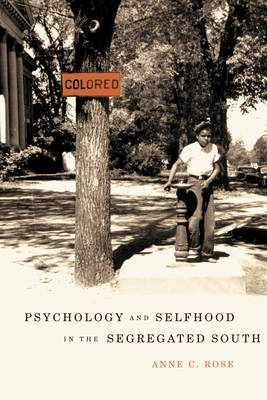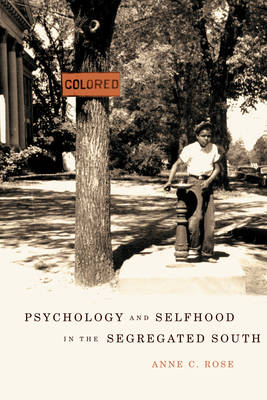
- Retrait gratuit dans votre magasin Club
- 7.000.000 titres dans notre catalogue
- Payer en toute sécurité
- Toujours un magasin près de chez vous
- Retrait gratuit dans votre magasin Club
- 7.000.0000 titres dans notre catalogue
- Payer en toute sécurité
- Toujours un magasin près de chez vous
61,45 €
+ 122 points
Description
In the American South at the turn of the twentieth century, the legal segregation of the races and psychological sciences focused on selfhood emerged simultaneously. The two developments presented conflicting views of human nature. American psychiatry and psychology were optimistic about personality growth guided by the new mental sciences. Segregation, in contrast, placed racial traits said to be natural and fixed at the forefront of identity. In a society built on racial differences, raising questions about human potential, as psychology did, was unsettling.
As Anne Rose lays out with sophistication and nuance, the introduction of psychological thinking into the Jim Crow South produced neither a clear victory for racial equality nor a single-minded defense of traditional ways. Instead, professionals of both races treated the mind-set of segregation as a hazardous subject. Psychology and Selfhood in the Segregated South examines the tensions stirred by mental science and restrained by southern custom.
Rose highlights the role of southern black intellectuals who embraced psychological theories as an instrument of reform; their white counterparts, who proved wary of examining the mind; and northerners eager to change the South by means of science. She argues that although psychology and psychiatry took root as academic disciplines, all these practitioners were reluctant to turn the sciences of the mind to the subject of race relations.
As Anne Rose lays out with sophistication and nuance, the introduction of psychological thinking into the Jim Crow South produced neither a clear victory for racial equality nor a single-minded defense of traditional ways. Instead, professionals of both races treated the mind-set of segregation as a hazardous subject. Psychology and Selfhood in the Segregated South examines the tensions stirred by mental science and restrained by southern custom.
Rose highlights the role of southern black intellectuals who embraced psychological theories as an instrument of reform; their white counterparts, who proved wary of examining the mind; and northerners eager to change the South by means of science. She argues that although psychology and psychiatry took root as academic disciplines, all these practitioners were reluctant to turn the sciences of the mind to the subject of race relations.
Spécifications
Parties prenantes
- Auteur(s) :
- Editeur:
Contenu
- Nombre de pages :
- 320
- Langue:
- Anglais
Caractéristiques
- EAN:
- 9781469615080
- Date de parution :
- 01-03-14
- Format:
- Livre broché
- Format numérique:
- Trade paperback (VS)
- Dimensions :
- 156 mm x 234 mm
- Poids :
- 494 g

Les avis
Nous publions uniquement les avis qui respectent les conditions requises. Consultez nos conditions pour les avis.






